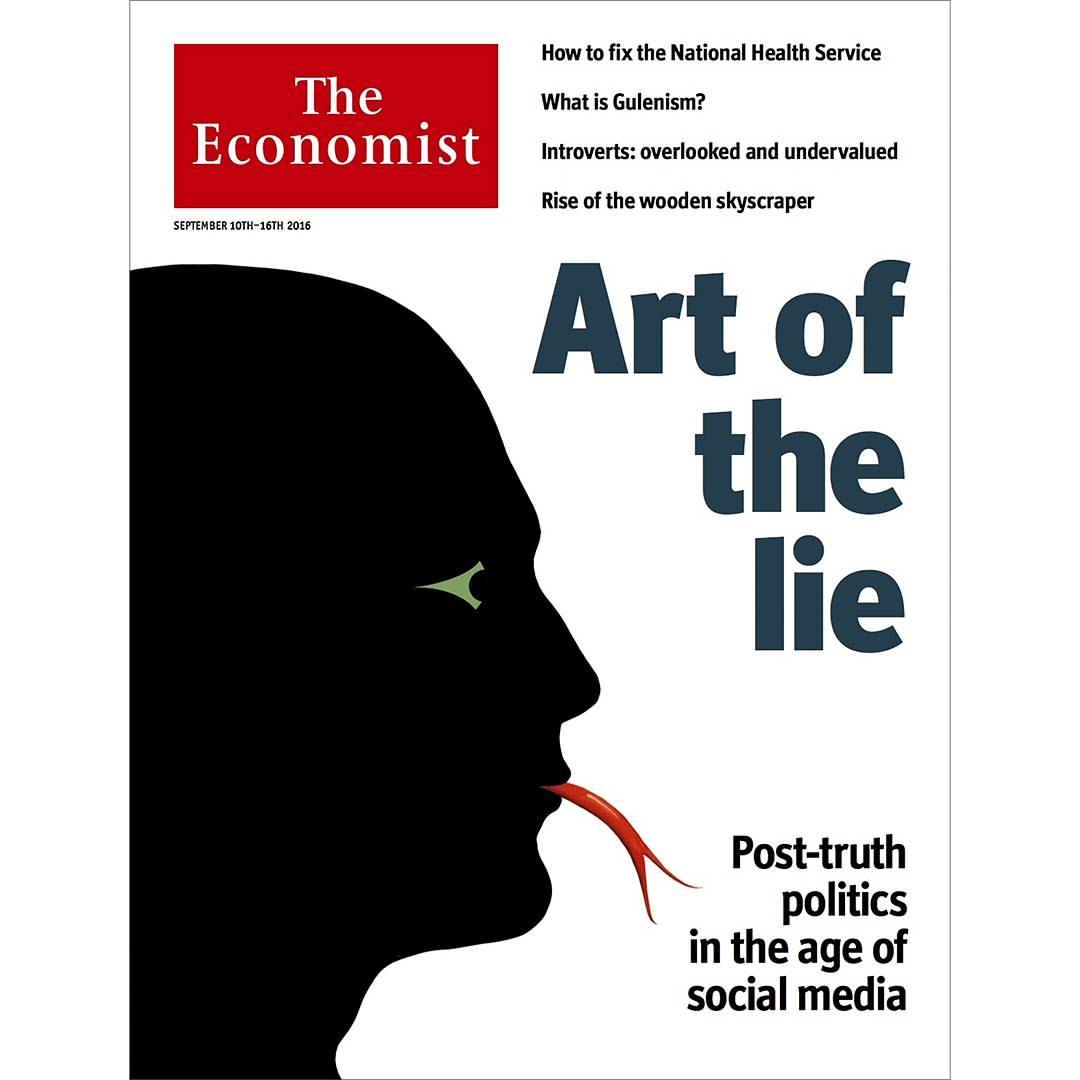What is Post Truth era ?
- Post-truth politics is a political culture in which debate is framed largely by appeals to emotion disconnected from the details of policy, and by the repeated assertion of talking points to which factual rebuttals are ignored.
- Post-truth politics has been applied as a political buzzword to a wide range of political cultures – one article in The Economist identified post-truth politics in Austria, Germany, North Korea, Poland, Russia, Turkey, the United Kingdom and the United States
'Post-truth' named word of the year 2016 by Oxford
Dictionaries
What is the
context ?
- US election and EU referendum drive popularity of adjective describing situation ‘in which objective facts are less influential than appeals to emotion’
 |
That
post-truth acquired currency in the two major English-speaking countries on
both sides of the Atlantic is understandable. Both the UK and US experienced
political convulsions in 2016 that neither its political class nor its
intelligentsia were prepared for.
Both
the vote for Brexit in the summer and the election of Donald Trump as US
president were more than normal electoral upsets. They symbolised a mass
uprising of ordinary citizens fed up with a cosy political consensus and elite
condescension. The articulation of their causes may have lacked refinement and
been overburdened with attitudes that violate the rigid codes of political
correctness, but they were nevertheless real enough for forgotten people to
defy the voices of loftiness.
In
the US, there was no publication of any consequence that endorsed Trump’s
candidacy. Yet, far from generating revulsion for a candidate who violated
almost every rule in the book, the outcome suggested a deeper distaste for the
political and intellectual establishment that has shaped the American
consensus.
 |
----------------------------------------------------------------------------------------------------------------------
Post Truth -- (criticism as an idea !)
- The bewilderment that followed Brexit and Trump was only to be expected. Less understandable, however, was the profound sense of denial that has gripped those who have toppled from their pedestals.
- Post-truth is a reworking of the much discredited Marxist notion of ‘false consciousness’ that was based on the notion that there is one living truth centred on the wisdom of those who are sufficiently enlightened.
- It assumes that there is only one objective truth and that the debate between the half-full and half-empty can be settled conclusively and objectively. To those who had never encountered a Trump voter or who couldn’t think why anyone would endorse the UK’s exit from the European Union, post-truth became a catch-all phrase to justify their limited exposure to their own societies.
- Rather than acknowledge the limitations of their own social reach, post-truth became a shorthand to argue that the others were ignorant fools, living in a world of delusion.
--------------------------------------------------------------------------------------------------------------------
Conclusion
!!
Post-truth
may be a useful category to understand the widespread liberal angst after the
shocks of 2016 and, maybe, even the resurrection of nationalism in the West.
---------------------------------------------------------------------------------------------------------------------
Another word 'alt right' ?
- shortened from the fuller form “alternative right”
- defined as “an ideological grouping associated with extreme conservative or reactionary viewpoints,
- characterised by a rejection of mainstream politics and by the use of online media to disseminate deliberately controversial content”
---------------------------------------------------------------------------------------------------------------
Other words ( just for awareness !!! )
Brexiteer:
noun,
informal
A person who is in favour of the United Kingdom withdrawing from the European Union.
A person who is in favour of the United Kingdom withdrawing from the European Union.
chatbot:
noun
A computer program designed to simulate conversation with human users, especially over the internet.
A computer program designed to simulate conversation with human users, especially over the internet.
coulrophobia:
noun
Extreme or irrational fear of clowns.
Extreme or irrational fear of clowns.
glass
cliff: noun
Used with reference to a situation in which a woman or member of a minority group ascends to a leadership position in challenging circumstances where the risk of failure is high.
Used with reference to a situation in which a woman or member of a minority group ascends to a leadership position in challenging circumstances where the risk of failure is high.
hygge:
noun
A quality of cosiness and comfortable conviviality that engenders a feeling of contentment or wellbeing (regarded as a defining characteristic of Danish culture).
A quality of cosiness and comfortable conviviality that engenders a feeling of contentment or wellbeing (regarded as a defining characteristic of Danish culture).
Latinx:
noun
A person of Latin American origin or descent (used as a gender-neutral or non-binary alternative to Latino or Latina).
A person of Latin American origin or descent (used as a gender-neutral or non-binary alternative to Latino or Latina).
woke:
adjective, US informal
[Originally in African-American usage] Alert to injustice in society, especially racism.
[Originally in African-American usage] Alert to injustice in society, especially racism.
